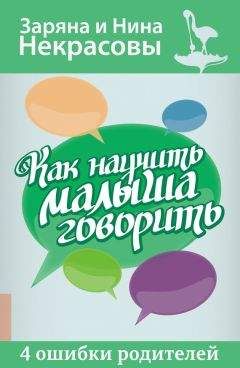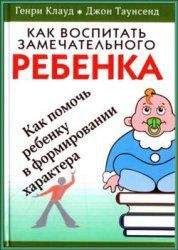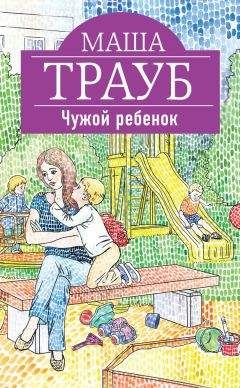Leo Frankowski - CONRADS QUEST FOR RUBBER
Several of their very tiny children were playing a game with a ball, when it rolled into a stream. I waded in to get it for them and was surprised to find the ball shedded water like wax, but it was soft, like flesh. I gave the ball back to the children and went to talk about it with some of the adults.
I was told that the toy was made from the sap of a certain tree, which they were very happy to take me to. At last I had found the almost mythical rubber tree! In fact, there were quite a few of them out there.
I got Tomaz and Gregor and showed them my find. After that, we worked out an efficient way to bleed the trees without killing them, and collected as much of the sap as we could. Over the months, we turned some of it into balls, in the native fashion, and stored the rest in empty glass food jars. We also collected samples of the tree's bark and its leaves, to aid others in finding them.
After more than six months of only occasional rain, the great downpours returned in earnest, and the river began to fill. Our canoe had not rotted as our riverboat had, and we soon had all in order for our departure.
We tried to persuade our wives to stay behind, for we weren't at all sure what we would do with them back in Poland, or whether they would like it there. But our tiny ladies were adamant about going with us. We had told too many stories about what it was like in Europe, I suppose. Also, the elders insisted that we take them with us, and their continued goodwill would be important when we returned to establish a trading post here, to bring in the rubber.
We shoved off in much better physical shape than we had arrived in, and with our company now increased to seven. The trip back was long and arduous, but relatively uneventful. At least nobody died.
When we at last put in at the fourth trading post we had established, we found it deserted, as was the native village it had been built next to. A day's searching through the ruins of both gained us no enlightenment. There was no evidence of violence. The post and the village had not been burned, but simply abandoned. Near what must have been the church, we found more than two dozen graves, with wooden crosses over them, but no indications as to who was buried there. Profoundly disturbed, we went on east, to the next post.
The story was the same at the third post and at the second. My men were gone, the villagers were gone, and there was nothing to show why this had happened. It was not as though some other tribes had supplanted the ones we had befriended. The countryside seemed to be devoid of all human life.
At the first post, I found Sir Caspar, the lance leader I had left there a year before. The village behind him looked to have about a third of its former inhabitants left.
He was nearly as naked as we were, sporting little but some pants with the legs cut off, and a pair of native sandals, yet he saluted me in proper army fashion, and it seemed only proper to salute back, even though I stood before him naked and barefoot. In military fashion, I asked him to report.
"It was sickness, more than anything else, sir," he said. "I lost one man to a dragon, and three more to fevers. The people in the village were sick, too, but of some other disease, like the worst cold you ever saw. Nothing we tried did any good, and the native doctors couldn't do any better, on their people or on mine. I got word from the other posts that they were in trouble, but we didn't have any help to send to them. I was bedridden and my men were either dead or shaking with fevers. I haven't heard from the other posts in six months."
I asked him about any other riverboats, and he said they hadn't seen one since I left him there, a year ago.
We went into his native-style hut, and Gregor brought some whiskey up from the canoe. While the women went out in search of supper, I filled Sir Caspar and his men in on all that had happened to us since I had last seen him.
"My God. Then we six are all that are left of a platoon of forty-three men? What a disaster!" he said. "And why haven't the other three platoons come looking for us? Could they be in worse shape than we are?"
I said that I didn't know, but I intended to leave in the morning for the rendezvous point, at the island with the flag. I asked him if he wanted to join us.
"No, sir, I don't see how I can. Father David has been making progress here in converting those villagers who survived the plague. He wouldn't even consider leaving without orders from his superiors in Poland. Ronald and I couldn't possibly abandon him."
I saw his point, and promised to return, no matter what I found out. Before leaving, I asked if they had any clothes to spare. Sir Caspar offered me the shorts he was wearing. That was all he had. Even their bedding was gone. I, of course, declined his offer.
Later that night we took advantage of Father David's presence to go to confession.
In the morning, after we recited our Army Oath, we sang a proper mass, with Communion, for the first time in entirely too long. Then we left, heading east.
Chapter Thirty-One
From the Journal of Josip Sobieski
WRITTEN MARCH 12, 1251, CONCERNING FEBRUARY 10, 1251
As we came in sight of the island, I could barely believe my eyes! The entire island had been logged over, and a dozen new buildings, all made of concrete — army fashion — were either completed or under construction! At least a full company of men were busily working. Above it all was a huge, multi-element yagi radio antenna.
As we tied our canoe up to one of the docks, a sentry looked at us with his mouth open, then ran to get his superior. He was wearing a clean, summer-weight class B uniform, and for the first time in half a year I was seriously conscious of my own nakedness.
I suddenly realized I was coming back a dismal failure. I had been sent out with a steam-powered riverboat, tons of supplies, and a platoon of forty-two healthy, well-educated young men. Now the boat was a rotten mound in the jungle, the supplies were gone, with almost nothing to show for them, and all the men were dead except for the two naked survivors next to me, plus three more, left behind at a trading post — out in the bush — with nothing to trade.
I had lost an incredible thirty-seven out of forty-two of the army's finest young men. If ever a platoon leader deserved to be shot, it was me.
I wasn't sure what their feelings would be about the four women with me. Jane, at least, had certainly earned the right to be one of us, and the others were our wives. I didn't know what army policy was toward non-Christian, native wives. But there was nothing to do but to brazen it out.
As we were unloading the canoe onto the dock, a group of clean, groomed, and uniformed men came out to us, and I was suddenly glad we had left the whiskey barrel back at the trading post. With it, I could see them adding drunkenness to the list of charges against me. Leading the group was Baron Siemomysl himself, the commander of the entire Explorer's Corps.
He was smiling!
He completely ignored military formality and said, "Sir Josip! My God, but it's good to see you alive! We were all worried about you! Welcome to Brazylport! Come, introduce me to your party."
I introduced the men and women of my group to my baron, and told him a bit about each of them. He seemed delighted with them, but he winced when he noticed the hand-carved stock on my rifle.
"Excellent! I see that you have brought back samples of rubber, besides. But for now, unless you have something urgent to tell me, rooms are being made ready for you, and I'm sure you would like a chance to freshen up."
Which was as polite a way as he could manage of saying that I probably didn't want to report in officially while I was buck naked.
The baron personally led us back to the married housing area, and gestured to the tree stumps and the soil denuded of vegetation.
"We had to clear the entire area in order to clean out all of the nastier plants and animals. We'll be replanting it soon,with safe, useful local plants. Perhaps some of your ladies can advise us on that."
When we got to the married housing area, some troops were just carrying a new set of furniture into a new building. Four women in Explorer uniforms greeted our ladies and whisked them away. I was glad to see that someone had talked Lord Conrad out of his silly "men only" policy for the corps.
The baron left, saying, "Come and see me as soon as you are ready."
We men were shown the way to the showers. An hour later, scrubbed, shaved, and with my hair properly cut, I walked to the commander's office in a new class A uniform, with my tattered logbooks and journals under my arm.
The baron returned my salute and politely asked me to sit down.
"Well, now. The short of it is that as soon as we realized the mistake we'd made, we got another expedition together as quickly as possible. Launching the first expedition without any experienced men was an unavoidable necessity, but sending your company out with riverboats that rotted apart in a few months, with radios that ceased to function in weeks, and with food supplies that went bad even quicker, was downright criminal. The army owes you and your men a serious apology, son.
"We've been here for four months now, and with the buildings mostly up, we've started doing what we came here to do. Namely, to get your people the kind of equipment you need, and to test it on-site. Our first ferrocrete riverboat will be coming down the ways in a few weeks, and then we can start exploring properly! We started testing special paints and preservatives the day we got here, and work is already being done on a radio that works in this humidity. But enough of that. Pour yourself a drink and tell me what has happened to you this past year."
I told him the whole story, and filled my glass several times in the telling. The short twilight of the tropics had started before I was through.
"That was quite a story, Captain Sobieski. Yes, you've been promoted, and your men have just been promoted along with you. We'll come up with something for your native warrior woman, as well. You all deserve it, and there is a lot of work around here that needs doing. We'll be working together for a long time to come. The rubber you brought in wasn't the first, but a third source of supply will be very valuable, and your discovery will certainly be exploited. Those Yaminana people of yours sound fascinating, and I look forward to talking to your pretty little Booboo as soon as possible."
I thanked the baron, but said that I was looking forward to a trip home to Poland before long. I had a young lady there who was waiting to be my bride.
"That brings me to a very painful topic, Captain. I got a message from Lord Conrad three days ago, and, well, you can't go home. None of us can. It was only a few weeks ago that enough men like you made it back to impress on us the magnitude of the disease problem. It now appears that at least half, and possibly as many as three-quarters, of your old company have died of disease. Furthermore, they died of diseases unknown in Europe.
"In order to replace you, if you went home, we would have to bring in at least two and perhaps as many as four other men, and then watch as one, or two, or three of them died of disease in the first year. And that's not the worst of it.
"If you went back home, you could be a carrier of any or all of the deadly diseases that have afflicted your company. You could start a plague that could wipe out half the population of Christendom! And the problem gets still worse.
"We have already started plagues among the native peoples of this continent! Diseases that don't seriously bother us are deadly to them. Out of ignorance, we may have committed one of the worst crimes in history! Whole villages have already been obliterated. In the end, by simply coming here, we may have caused more deaths than the Mongols did with all their armies, swords, and arrows! So you see, we can't possibly let any of our people go home until this problem is solved.
"Furthermore, we have another company of volunteers forming up in Poland, medical people who are going to come out here to try to find a cure for the plagues we've started. They are coming here knowing that most of them will be dead within the year. The survivors of that company won't be going home, either."
I sat back, stunned. It was too much, too big. This day I had been raised to the heights on seeing the new base, when I had feared to find nothing but an empty island. Then I was cast down at the thought of my own dismal failure, then lifted back up at the baron's pleasant welcome, and then cast down again by this horrible news.
I sat there, numb, unable to absorb it all.
After a while the baron said, "Is there anything else you want to know?"
I nodded yes, and asked about the others in my company, Captain Odon and the other platoon leaders.
"Captain Fritz came in a few weeks ago. He's on recuperative leave, but you'll find him around here somewhere. Sir Taurus, of course, was killed before you set out on your mission. Sir Kiejstut is dead. He died six months ago of some disease he picked up. They say that his ending was quick. Sir Lezek was reported to have been alive as of a few months ago, several hundred miles upriver. Of the others, we have no definite news."
So. I still had Fritz and probably Lezek. Maybe Captain Odon, maybe Father John. Maybe even Zbigniew, although that seemed remote. I was twenty-six years of age, and I felt old. Very, very old.
As I left, the baron's secretary passed me a note, saying that my men and the ladies were waiting for me at the mess hall, after which they would be at the inn. I had news for them, but I went to the radio room first.
I composed a message for my mother, and a much longer one for Maude, trying to tell her that I was well, but that I couldn't come home to her. I wrote and rewrote that message, but it never said exactly what I felt. No matter how I worded it, it still wasn't right. Finally, I just gave my first draft to the operator and asked him to get it out when he could.
I was told that the airwaves had been fairly clean for the last few days, and my messages would probably go through sometime tonight to the relay station in Portugal, and from there to Poland.
It was late when I got to the almost empty mess hall, but the cook scrounged me up some food. I barely noticed the entree, but the bread and the beer were so wonderful they almost cheered me up.
I found my party at the inn. I was surprised that the army would build an inn at so remote a site, but Lord Conrad was always concerned about the happiness of his men. It was just like every other Pink Dragon Inn, except the carved sign over the door showed one of the local dragons, painted pink, instead of the classical one.
I found my people scrubbed clean, pleasantly drunk, and comparatively well-dressed. The men at least were in proper uniform, and the ladies had been prevailed upon to wear short cotton skirts, at least.
When I asked, I found that they had heard of the orders forbidding return to Europe, so I wasn't forced to break that news to them. I told the men that the Christian Army was pleased with us, and congratulated them on their promotions, calling them Sir Gregor and Knight Banner Tomaz. After we drank to that, I explained that they could now refer to me as Captain Sobieski, if they did so respectfully, and with suitable bowing and groveling. They laughed, and we drank to that as well.



